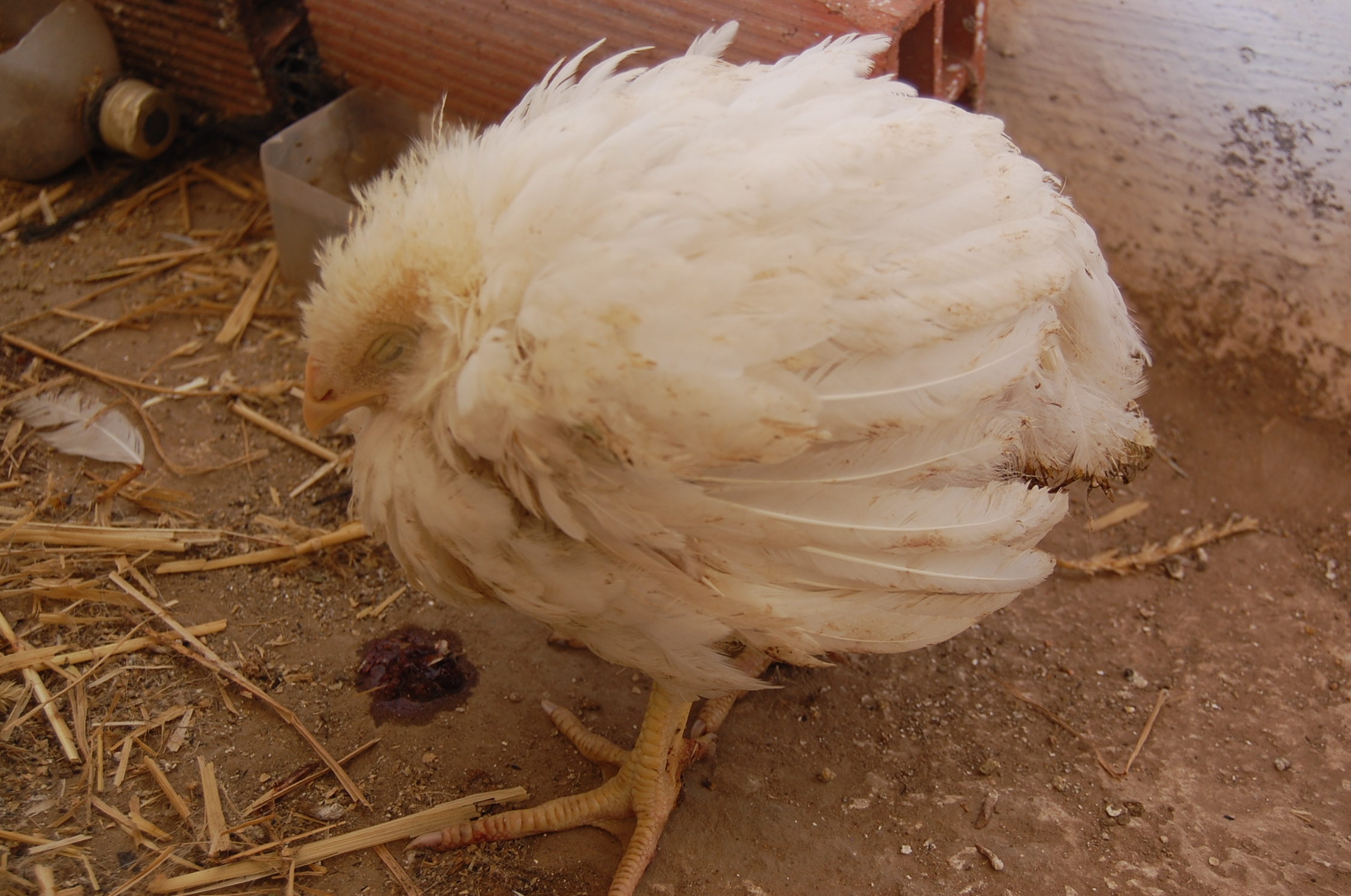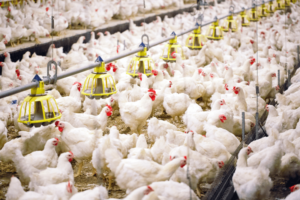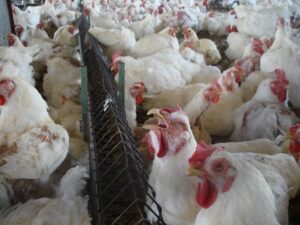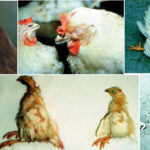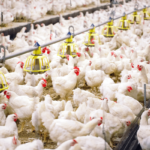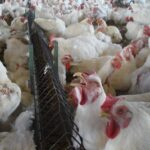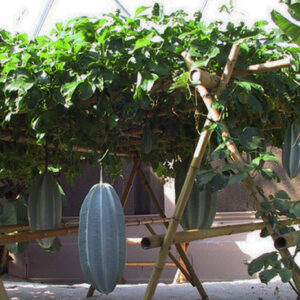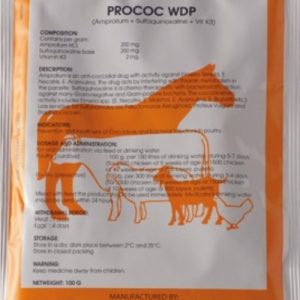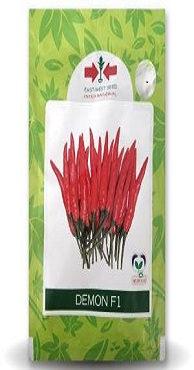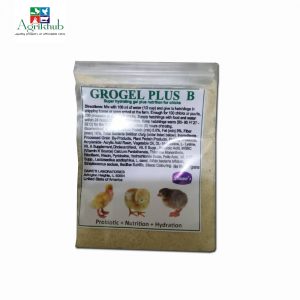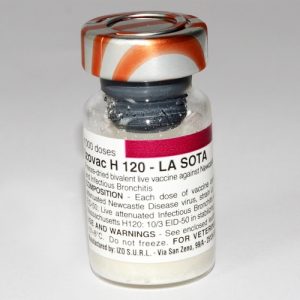Coccidiosis is an avian intestinal disease that occurs in typically young chickens when a microscopic parasitic organism (called a protozoa) attaches itself to the intestinal lining. It damages the tissue of the gut, causing bleeding (which can be evident in their droppings), prevents the chicken from absorbing nutrients and creates an environment in which bacteria can thrive. Basically it’s bad news for chickens. Younger chickens (under six months) are more at risk as they haven’t yet had time to develop their natural immunity, however adult birds can also become affected.
There are two types of coccidiosis:
- clinical coccidiosis in which the affected birds show typical symptoms of the disease, such as bloody droppings and increased mortality, and
- subclinical coccidiosis because the affected birds do not show visible symptoms of the disease but when a random sample of birds is examined, the presence of the gross lesions and the coccidia are found.
Coccidiosis in chickens – The Signs
All chickens naturally carry some coccidia in their intestine. Coccidia parasites in small numbers do not cause any symptoms or ill-health. However, signs of coccidiosis needing treatment include:
- Bloody or watery diarrhea
- Lethargy
- Lack of appetite
- Pale combs and wattles
- Droopy posture and wings
- Ruffled or puffed up feathers
- Droopy, dull or glazed eyes
- Poor growth in chicks
- Death
Coccidiosis usually affects:
- New chicks that don’t have any immunity to the parasite yet
- Young birds
- Sick or unwell birds
- Birds that are suffering from malnutrition
- Birds suffering from high parasite loads or other stresses
Causes of Coccidiosis in poultry birds
Like most intestinal parasites, the spread of coccidiosis is from the eggs (oocysts). These are laid in the gut of the infected host and passed out through their faeces. The life cycle begins again when these eggs are consumed and hatch in the new host’s intestine. The parasite burrows into the gut lining and impairs digestive function as it multiplies and produces more oocysts.
Chicken and wild bird faeces spread oocysts. So even if you have the most stringent plans in place, a stray wild bird can introduce new oocysts to your flock. The eggs survive for up to a year in warm, wet conditions. Maintaining a clean, dry coop can significantly reduce coccidia exposure and parasite loads in your birds.
Coccidiosis outbreaks are associated with:
- Warm, wet conditions
- Unsanitary and overcrowded coop
- Stress caused by illness, high parasite loads, malnutrition
- Environmental changes
As “new” coccidia are the leading cause of coccidiosis in healthy chickens, it is good to be aware of the most common ways they may be introduced to your coop. New coccidia can come from:
- Introducing new birds to the flock – this is the most common cause and can occur even when the birds appear perfectly healthy. Because remember, the new birds have resistance to the strain of coccidia they carry but your birds probably don’t.
- Travelling with your birds and bringing them home again, for example attending a chicken show.
- A visiting chicken keeper with oocysts on their shoes, clothing or even vehicle tyres.
- Using equipment that comes from another chicken keeper. Such as buying a preowned coop, feeder or even egg cartons. Any pre-used things coming in must be disinfected as well as thoroughly cleaned.
Practising good chicken coop biosecurity is a must. Once you have the hang of it, honestly it becomes second nature.
Coccidiosis in chickens – Prevention
- Ensure water is clean and fresh
- Keep feeding areas clean and dry and don’t throw food on the ground where it can be contaminated
- Ensure your chicks have enough space – coccidiosis will take off in an overcrowded area. Chickens need four square feet of space each in their coops
- Provide medicated starter feed for chicks. If your chicks have been vaccinated against coccidiosis, don’t give them medicated starter feed, it will simply cancel out their vaccination.
- If you live in a particularly wet area consider giving amprolium as a preventative. You can buy it over the counter from vets, produce stores or pet stores.
- If introducing new members to your team of chickens, keep them quarantined for a minimum of two weeks, for the protection of everyone in the hen house.
Treatment of Coccidiosis
- Pick for treatment the drug most likely to be effective for the type of coccidiosis that you want to control
- Ensure the water lines have been flushed and do not contain residues of other drugs or water-administered supplements (vitamins, electrolytes, etc.)
- Sulphonamides are more stable and effective at neutral to alkaline water pH
- Remember that the required withdrawal periods varies between sulphonamides, and
- Be mindful of label directions and withdrawal periods to ensure efficacy and avoid tissue residues.

